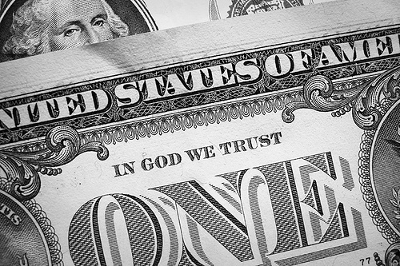Not Politics But Gospel
© 03.21.2016 By David Eric Williams
 Rehoboam, son of Solomon, king of Israel, began his reign by making a major mistake. The people had come to the new king asking for relief from Solomon's heavy taxation and micro management. The elders advised Rehoboanm to grant the people relief; his peers advised him to answer harshly, promising even greater tyranny than that of Solomon. As a result, the northern kingdom of Israel broke away from Judah and appointed Jeraboam as king. Reoboam mustered an army in order to subdue the rebellion but was told by the prophet Shemaiah that God said this thing is from Me (2 Chronicles 11:4).
Rehoboam, son of Solomon, king of Israel, began his reign by making a major mistake. The people had come to the new king asking for relief from Solomon's heavy taxation and micro management. The elders advised Rehoboanm to grant the people relief; his peers advised him to answer harshly, promising even greater tyranny than that of Solomon. As a result, the northern kingdom of Israel broke away from Judah and appointed Jeraboam as king. Reoboam mustered an army in order to subdue the rebellion but was told by the prophet Shemaiah that God said this thing is from Me (2 Chronicles 11:4).
This turn of events seemed to sober Rehoboam and the early years of his reign are characterized by obedience to God. However, it turned out Rehoboam's piety was only skin deep. Now it came to pass, when Rehoboam had established the kingdom and had strengthened himself, that he forsook the law of the LORD, and all Israel along with him (2 Chronicles 12:1). God was swift to act and it happened in the fifth year of King Rehoboam that Shishak king of Egypt came up against Jerusalem, because they had transgressed against the LORD (2 Chronicles 12:2). Shemaiah the prophet was on hand again and informed the king that Shishak had been sent against Judah as a means of punishment (2 Chronicles 12:5). To their credit, Rehoboam and the elders of Judah responded with repentance. Thus, God sent word through his prophet that he would not allow Shishak to destroy Judah but that Rehoboam and the people would be his servants, that they may distinguish My service from the service of the kingdoms of the nations (2 Chronicles 12:8). This gracious consideration was a humbling experience for the chosen people of God as they experienced life as "second-class citizens." They were no longer masters of their own fate under God but subject to the authority of an ungodly leader.
The circumstance for the church today is much different and yet much the same. The theocracy is gone but Christians still hope for godly civil leadership. However, the Gospel does not instruct us to grasp the reins of civil authority and impose a belief system on an unwilling populace. Instead, the church has the responsibility to share the good news, inviting everyone to accept the sacrifice of Jesus Christ on their behalf and bring their life and arena of activity under his Lordship. Nevertheless, the principle of ungodly leadership put in place in order to chasten the people of God remains the same. And the reason for it remains the same as well. In other words, Christians should be able to recognize the difference between life under an ungodly tyranny (even a soft tyranny) and a life lived in the enjoyment of our God given freedom.
The problem is, many Christians have come to accept overbearing civil authority as the norm. When they do acknowledge its ungodly character and express a desire for change, they seem to believe relief is realized through the political process. Nonetheless Christian civil leadership is an ingredient in the mix that is added later. You see, societal change for the good never takes place through a top-down imposition of law. That is a satanic lie. It's an attempt at salvation by law. Instead, societies change when there is a grass roots revival in the church. Our nation - indeed the world - will be turned upside down when millions of individual Christians bring their life and arena of activity under the Lordship of Jesus Christ. There is no political pressure involved. It is simply a mass movement of people expressing love to God and neighbor, just as the Bible says we should.
For some time now God has been showing us what it is like to serve man rather than God. Let us respond in repentance and humility laboring to bring our life and sphere of influence under the authority of Jesus Christ.
Entire Site Copyright © 2025 By David Eric Williams










